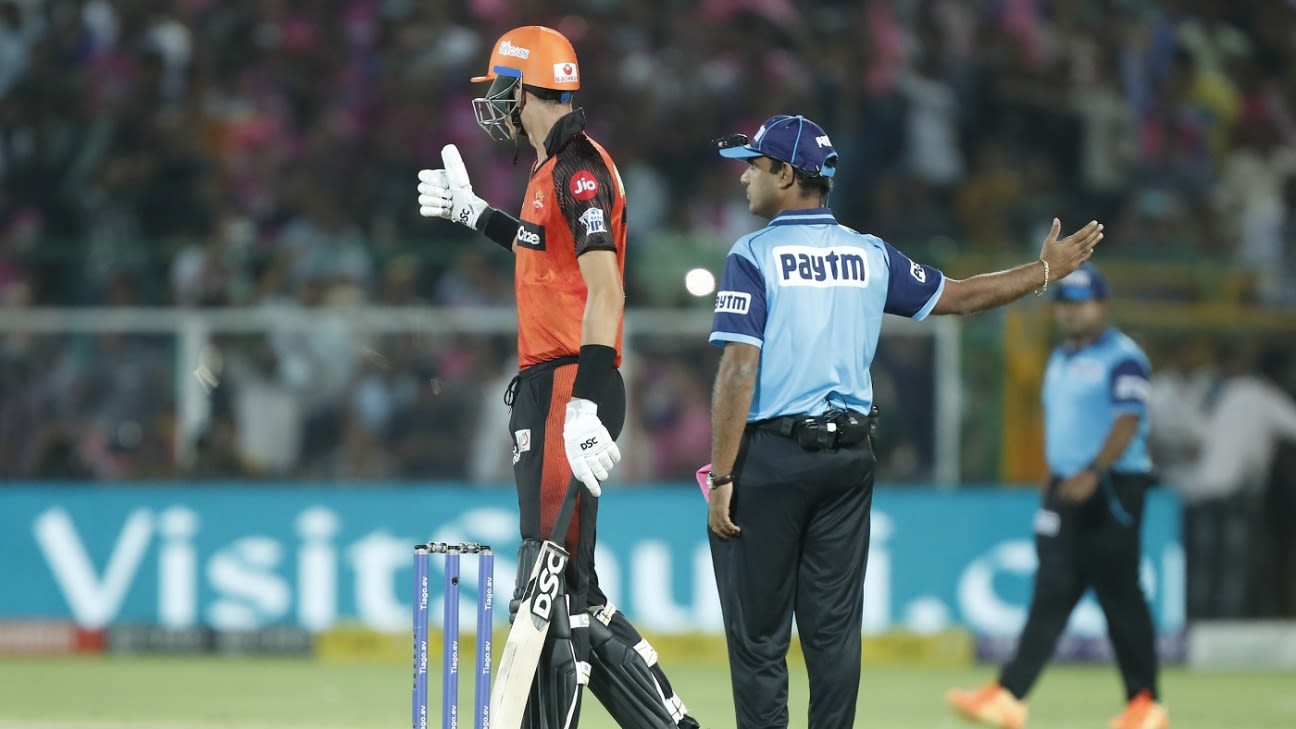IPL and Hawk-Eye join hands to end debate over above-waist no-balls
Written by I Dig Sports
To remove the subjective element involved in adjudicating above-waist no-balls, the IPL, in coordination with Hawk-Eye, has introduced technology to measure the height of the ball as it passes the batter at the popping crease. That is then matched against the toe-to-waist height of the batter when in an upright position - recorded in advance. If the height of the ball is higher than where the batter's waist is recorded to be, then it is declared a no-ball. Otherwise it's a fair delivery.
While the on-field umpire immediately signalled it, the Mumbai Indians players, including captain Hardik Pandya and his predecessor Rohit Sharma, asked why it was not called a wide when the ball was nearly outside the mark.
Coetzee had delivered a high full-toss that was also way outside off stump. It was measured at 1.44 metres, 0.42 centimetres above Abhishek's waist height of 1.02 metres. Both readings were showed on the left panel of the TV screen after Hardik reviewed the no-ball call. The no-ball call was upheld.
ESPNcricinfo has learned that Hawk-Eye has measured the waist height for every player this IPL, a piece of information that is available in their database. The third umpire has no role to play during the review, with measurements being worked out by an automated system installed by Hawk-Eye. It has also been learned that Hawk-Eye had been conducting trials for the past two years, and gave a presentation to the IPL with their improved graphics after the 2023 season.
The new system is expected to put an end to controversial decisions involved in adjudicating waist-high no-balls, like in previous IPL editions.
In the penultimate over of the SRH innings, Avesh Khan, who was then with LSG, delivered what looked to the naked eye like an above-waist full toss to Abdul Samad.
The on-field decision was a no-ball. However, the third umpire deliberated for long as he studied the ball-tracking technology, and overturned the on-field call. The third umpire took into consideration the fact that Samad was crouching a bit when the ball passed him at the popping crease, and that at full height, the ball would have been below his waist.















 Phone: (800) 737. 6040
Phone: (800) 737. 6040 Fax: (800) 825 5558
Fax: (800) 825 5558 Website:
Website:  Email:
Email: 






